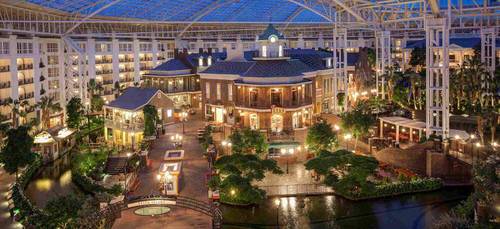
Three months after Marriott got a $600,000 fine from the Federal Communications Commission for blocking Wi-Fi devices at its Gaylord Opryland Hotel and Convention Center in Nashville, the hotel chain is petitioning regulators to let it do pretty much the same thing on all its other properties, too.
Marriott said it’s not seeking to block Wi-Fi access from personal devices in its guest rooms or lobbies, just its meeting spaces and conference rooms—and solely for security purposes.
See also: How This Hotel Made Sure Your Wi-Fi Hotspot Sucked
Marriott, along with the American Hotel & Lodging Association trade group, filed the petition to block Wi-Fi access on its properties in August, before the hotel chain was fined. The FCC however, opened up the petition for public comment in December, and there’s been a lot of criticism voiced by tech companies, security experts and hotel patrons.
With few exceptions, the FCC permits almost all Wi-Fi devices to freely access unlicensed wireless spectrum. Preventing access can result in hefty fines, as the Marriott learned in October. But according to the hotel chain’s recent statement, guests are encouraged to “use these Internet connectivity devices in our hotels.” It just wants the FCC to spell out how far a hotel can go towards securing its network:
The question at hand is what measures a network operator can take to detect and contain rogue and imposter Wi-Fi hotspots used in our meeting and conference spaces that pose a security threat to meeting or conference attendees or cause interference to the conference guest wireless network.
Security experts do believe that hackers are using deceptively named Wi-Fi networks to trick hotel guests into logging on and exposing their computers to danger. It’s not clear what that problem—which should mostly be addressed by educating people about not connecting to unknown Wi-Fi networks—has to do with people using personal Wi-Fi hotspots.
Critics believe that profit, not security, is the goal of this petition. As Recode reported last week, while Marriott was jamming personal hotspots at the Gaylord Opryland Hotel and Convention Center, “it was charging exhibitors and attendees anywhere from $250 to $1,000 for Wi-Fi service.”
These meeting-room fees are typically far higher than what hotel guests pay for daily Wi-Fi access in their rooms.
Google and Microsoft are among the major tech companies to criticize Marriott’s Wi-Fi blocking plan, which, if allowed, could become standard practice throughout the hotel industry.
“Hilton could not meet its guests’ expectations were it unable to manage its Wi-Fi networks, including taking steps to protect against unauthorized access points that pose a threat to the reliability and security of that network,” Hilton Worldwide added in support of Marriott and the hotel trade industry’s petition.
If you’ve got something to say to the FCC about the petition filed by Marriott International and American Hotel & Lodging Association to block personal Wi-Fi access, you can do that on the FCC website.
Marriott photos courtesy of Marriott Gaylord Opryland Hotel and Convention Center.

















